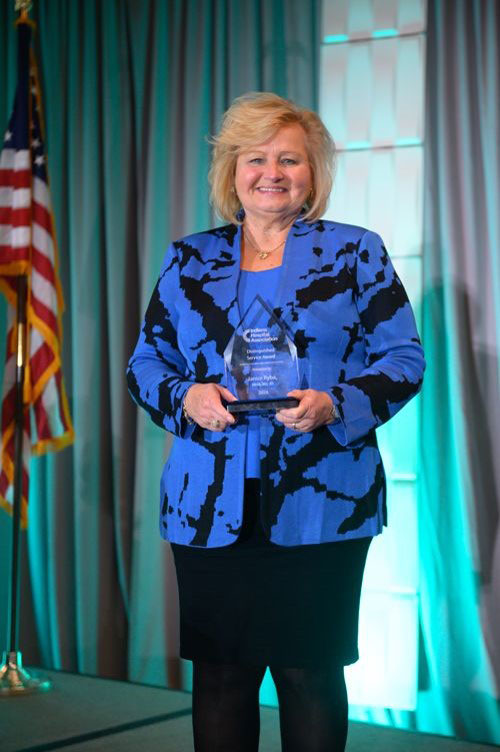
Lansing resident Bonnie Kruse believed she was fairly healthy for her age. At 71, she had never experienced any major illnesses or injuries. However, by summer of 2019 that was all about to change.
It began when Kruse felt a “strange” pressure on her chest and was feeling nauseous. It turned out to be a heart attack. Kruse was admitted to Community Hospital where physicians performed an emergency stenting procedure to open blockage in her coronary artery. After five days in the hospital, Kruse recovered quickly and returned home.
That was when her next medical emergency almost ended her life.
“I woke up in the middle of the night and couldn’t move my left side,” says Kruse. “I tried to speak and my words were all garbled. I knew something was wrong.’”
Kruse doesn’t remember much after that, however, her husband called 911. Emergency Medical Technicians promptly confirmed the stroke signs and called in a “stroke alert” to Community Hospital’s certified Comprehensive Stroke Center. The alert mobilizes the hospital’s advanced medical stroke team including a neuroendovascular surgeon and specially trained staff to begin preparations for Kruse’s arrival.
Upon arrival, Kruse immediately underwent an extensive stroke assessment that consisted of several CT scans. The results were ominous. They confirmed a large vessel occlusion blocking blood flow to the left side of her brain. Immediate removal of the clot was necessary to save her life and minimize any possible brain damage. Time was critical.
“Five years ago, a case like Bonnie’s would have had devastating consequences,” says neuroendovascular surgeon Aamir Badruddin, MD, medical director, Comprehensive Stroke Center at Community Hospital. “Today, we have the ability and resources to remove the clot and open up the blood vessels so that she can go home and carry on with her life.”
As a certified Comprehensive Stroke Center, Community Hospital is one of only three percent of hospitals nationwide and the only one in Northwest Indiana that has established the technology, expertise and outcomes to offer this level of care. The hospital is staffed and equipped to treat even the most complex, life-threatening types of strokes in patients from within a 150 mile radius.
Badruddin adds that Comprehensive Stroke Centers such as Community Hospital’s also requires specialized surgical equipment and an entire team that supports the program. The center also must include a dedicated neuro critical care unit, the availability of neurosurgeons 24/7, availability of neuro critical care doctors and a high performing program with stroke coordinators and stroke support staff.
For more information about stroke care and treatment at the hospitals of Community Healthcare System, visit COMHS.org/stroke.

